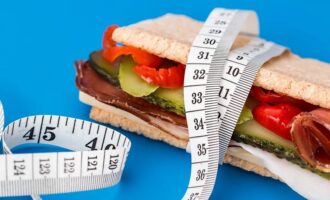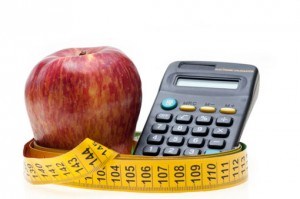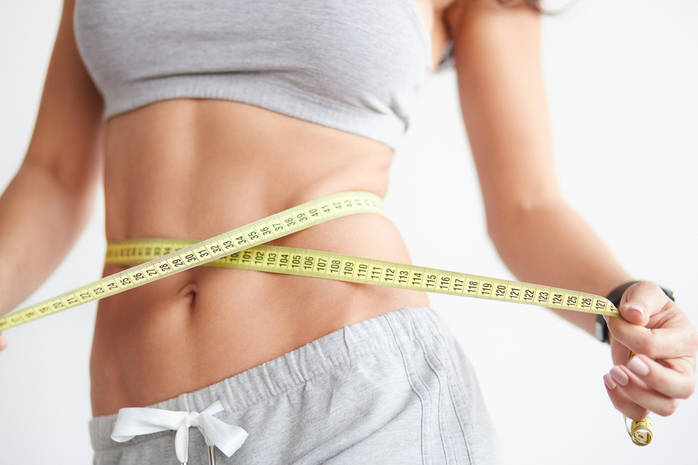
Wondering, where did the author of the Minus system go? 60 Ekaterina Mirimanova? So she didn't even try to hide. Ekaterina lives in Spain, conducts online seminars, where he teaches weight loss and writes books. One of the new ones was the bestseller “I’m a Foodaholic”. As usual, This is a book not only and not so much about nutrition, how much about our tormented souls. And bodies, which reflect a negative attitude towards oneself by gaining extra pounds. Generally, The book is recommended reading for lovers of practical psychology, and not recommended - those, who wants to read about squirrels, fats, carbohydrates and calories, as well as competent power loads.
Who are you, foodaholic according to Mirimanova
Ekaterina compares excessive love for tasty and unhealthy food with alcoholism. She gives a test for alcohol abusers, and suggests changing the word “drink” to the word “food”. It looks like it's working out, is not it? Yes, our relationship with food often resembles a painful first love, desperate in its futility. We look at the cake with tenderness, quench your passion with chocolate, and then we look at the consequences in the mirror and smile sadly. We no longer only eat, to live, but also to cheer up or relax, relieve stress or comfort yourself…But is this information really new to you?? We believe, not very new, if you picked up a book about food addiction.
Ekaterina considers any person to be a foodaholic, experienced episodes of emotional eating, seeking to “eat up” stress or simply unable to control oneself regarding the amount of even healthy food. She thinks, that most of these problems are due to self-dislike.
How to get rid of food addiction according to Mirimanova
Catherine invites you to engage in self-analysis. Yes, You, probably, somehow you don't feel right about yourself, times, instead of what is allowed by the system, you eat everything in a row. Generally, based on the results of “healing” food addiction, you will have to come to the following:
- three meals a day, no snacks. If everything is really bad, and snacks are still required, you will do one, between breakfast and lunch. “Totally bad” is allowed, when a person eats his first breakfast early in the morning, and gets hungry before lunch;
- to 12 hours of the day you can eat everything. You heard right. “Everything” means any food. To help you get rid of food addiction, Ekaterina suggests going to the nearest store and purchasing such wonderful products there., like smoked sausage with sandwich bread and chocolates. Or who loves what. There are quite a lot of prohibitions on the system that I personally don’t understand. Like, you can eat the apple, but a banana - you couldn’t. You can have berries, but mango only in the morning. And stumbling block number two - rice, also only in the morning. But you can chew buckwheat at six in the evening, although for a healthy person the rate of absorption of these two wonderful products is very comparable. Generally, Some postulates of the minus system are not clear and mysterious 60, but that's not what we're talking about;
- for lunch you can only have something like porridge on water with meat, and salad, or, suddenly, sushi, although a good half of the rolls we sell contain mayonnaise, and cheese, and generally speaking, it seems to me, leftover salads with mayonnaise from a neighboring bistro;
- For dinner you should eat according to the principle of separate meals. Which, just between you and me, that's another principle. Generally, you will chew or buckwheat with vegetables, or just cottage cheese, or something else, just as tasty and healthy
In short, such nutrition is still considered standards.
About diets and their followers
You can treat Svetlana Bronnikova as a person in any way you like.. But behind it is a diploma from a good university in the specialty, and many years of clinical practice. And she treats precisely “foodaholics”. So, if you look at Mirimanova’s book from Bronnikova’s point of view, an interesting picture emerges:
- instead, to really work with food addiction, a friend who is losing weight is offered…just a diet, in which rational prohibitions are lifted, and included irrational. Let's not argue, This diet will help you limit your caloric intake., but it will be a big problem, if you actually have an eating disorder. Many comrades develop bulimic type disorder, eating allowed breakfasts. And other comrades eat nothing at all from lunch and dinner, making do with a couple of apples and a pack of cottage cheese, and we are also sure, that are sitting on the system…Here you can object a hundred times, that Katya doesn’t recommend this, but it’s not about Katya and her advice. And in that, what if you have an eating disorder, you need to treat your eating disorder first, and then edit your figure. If it needs to be edited at all;
- restrictions for many people can serve as a trigger for exacerbation. Speaking in the same language as Bronnikova, lunches and dinners on the “system” — the same dietary “prison”, and a compulsive eater, bulimic, anorexic needs freedom. Do you want to say, that this book is only for emotional eaters? And this is not from our name, It does not follow from the nature of the work. So we just see small flaws. By type, which usually happen, when a person sincerely wants to help, but understands the subject only from the standpoint of his personal, not scientific experience.
Generally, the picture doesn't add up. But I'm not an expert in eating psychology., and, so to speak, simple user.
Personally, I have questions for Ekaterina from the other side. With training. Our author suggests doing exercises every day. Forgive me, but I don't know many people, who can actually train well every day, and recover, and they don’t inject themselves with anything. Again, sorry for being blunt.. Genetic freaks train daily, predisposed to endurance activities, “users” of highly detailed splits and the practice of developing different physical qualities in one cycle. And also people, worked as trainers.
But their life is a fairy tale, they don’t have to sit in the office 8 hours, and you can eat anywhere. You're a coach, Here, take out the container and go. But for an ordinary person losing weight, daily exercise is not recommended. First of all, that same feeling of internal struggle, which precedes his attendance at each training session, usually pushes him down the slippery path of creating comfort through food. And "besides", sorry for being blunt again, than doing monotonous exercises at home on the carpet, it’s much easier to learn to train normally once in your life, and continue to work purely in efficient modes.
But, here, as the saying goes, what does anyone like. For some, this book may help them simply understand the essence of their problem and begin not to rush from diet to diet through overeating, and mature enough to work with a clinical psychologist.
Elena Selivanova




